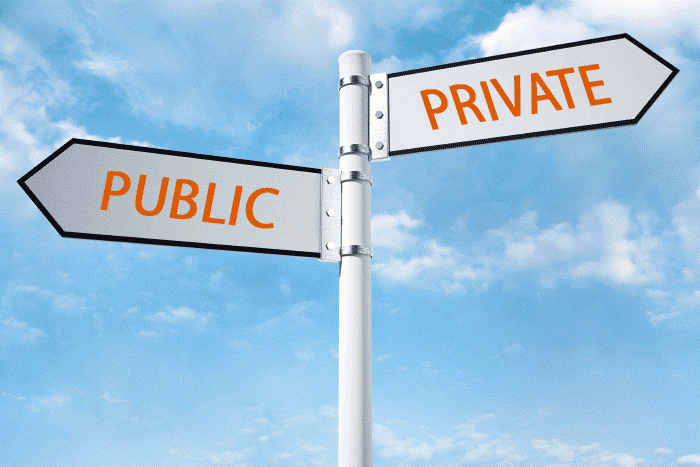Public Water Sector or Private Companies?
Published on by Water Network Research, Official research team of The Water Network in Business
Is America is turning to private companies to solve their investment problem and manage their water supply a good idea?
 A perfect storm of aging infrastructure, stretched municipal budgets, and changing climate conditions are putting the country’s water systems under pressure.
A perfect storm of aging infrastructure, stretched municipal budgets, and changing climate conditions are putting the country’s water systems under pressure.
Faced with the steep cost of fixing their broken and ill-prepared infrastructure, lawmakers on both sides of the aisle are turning to private money in their search for an answer to the country’s water woes.
While the record of private companies handling water supplies has been mixed, this trend toward water privatization seems to be some kind of tacit acknowledgment that local governments can’t fix the problem on their own.
It’s complicated
Delivering water is complicated—and expensive. In many municipalities around the country, a patchwork of city and county governments is responsible for differing aspects of the water infrastructure.
One entity may manage water treatment plants, another could be responsible for pipes that deliver water to people, and another for billing and maintaining the system. Building owners are responsible for their own pipes.
About 240,000 water mains break every year in the country, sucking $2.6 billion down the drain, according to an email from the Environmental Protection Agency. Aging sewer structures, which in many parts of the country borrow sewer technology from Roman times, spit billions of gallons of raw sewage into local surface waters, says the agency.
It estimates that the country will need $655 billion in the next two decades to modernize water infrastructure.
Wall Street to Main Street
Money to fix America’s water woes needs to come from somewhere. The question is where.
“We seem to struggle as a nation to pay the full cost of public services,” says Mildred Warner, a professor of city and regional planning at Cornell University. She has a point. American Water Works Association estimates that water rates in the US are about half of rates in northern Europe.
For municipalities, bringing in private players is often the easiest and most politically expedient solution.
Going back
Privatization is far from a cure-all, however, and with for-profit players comes a heated debate over whether private players are any more or less efficient than government ownership of public services.
Those pushing for privatization believe that for-profit companies are more efficient at managing water systems and have the expertise to do so. But opponents believe that for-profit companies charge too much for water services in order to meet corporate bottom lines. Food and Water Watch, a consumer rights group, for example, reports that large, for-profit, privately-owned water systems charged households 59% more for water than large, publicly-owned systems.
In reality, private companies are no better or worse at holding down costs than public entities, says Warner. She looked at published studies from 1965 to 2009 and found no difference in costs between privately-controlled and publicly-controlled systems.
Whatever advantages or disadvantages that come from private companies managing water supplies disappear because contract terms are often decades long, and water quality standards are tightly regulated by the Environmental Protection Agency.
It’s something that many municipalities are discovering on their own. So far, the rate of water privatizations in the country has remained pretty steady in recent years, according to Warner. Using data from the International City County Management Survey of 2012, she reports that about 75% of the country’s municipal water systems are entirely in public hands and 6% are run by for-profit companies. The rest have some mix of public and contract management.
Curiously, even though the overall share of municipal water systems under public control has remained steady, that number obscures the much larger number of towns that are experimenting with privatization. Warner reports that about 10% of municipalities newly contract out water services each year while another 10% bring their water system back under public control.
“What that suggests is that local government managers are looking to save money, and if it doesn’t work they bring it back,” she says.
Source: Quartz
Media
Taxonomy
- Wastewater Treatment
- Water Treatment Solutions
- Integrated Urban Water Management
- Sustainable Water Resource Management
- Water Management
- water treatment
- Water Treatment & Control
- Water & Wastewater Treatment
- Integrated Water Resources Management (IWRM)
1 Comment
-
RODMIL construction LTD company wish to be considered for empowerment in terms of water drilling equipment. the company wish to drills boreholes to poor communities in Zambia to access to clean and safe, hence improving nutrition sensitive to the poor communities in Zambia.